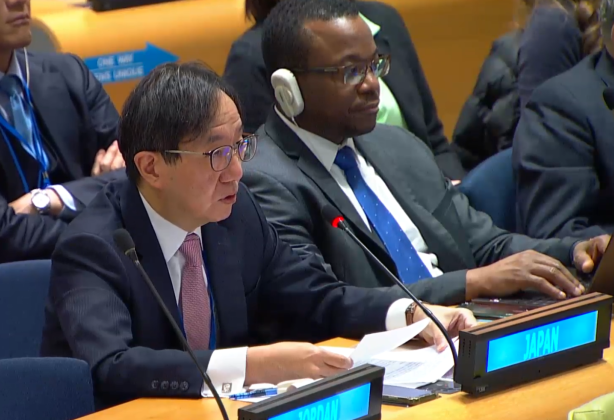Statement by H.E. Ambassador YAMAZAKI Kazuyuki, Permanent Representative of Japan to the United Nations, at the Informal Meeting of the General Assembly on the Intergovernmental Negotiations on Security Council Reform
2025/1/21

(As delivered)
Thank you, Co-Chairs, as usual.
Japan fully aligns with Germany’s statement on behalf of the G4. I will make additional remarks in my national capacity.
Confronted with the reality of a permanent member of the UN Security Council invading another sovereign member state against the UN Charter while protecting its own national position through the use or threat of use of the veto, the majority of the Member States have been emphasizing the need to limit the use of the veto in certain circumstances.
This is reflected in the Pact for the Future adopted last September to “intensify efforts to reach an agreement on the future of the veto, including discussions on limiting its scope and use”.
From this perspective, the French-Mexican initiative and the ACT Group's Code of Conduct are valuable efforts as immediate measures that contribute to the above objectives without amending the Charter, and Japan supports them. These initiatives are not, however, supported by all permanent members of the Council, and therefore Japan continues to urge all permanent members who have not done so to commit to voluntary restraint on the use of the veto without delay and to implement this commitment accordingly.
Co-Chairs,
A more fundamental issue is the need for a solution to the existing imbalance within the Security Council in terms of the veto. Reform of the Security Council is an urgent task, and discussion of the veto is an important part of it.
Regarding the veto, Japan, as a G4 member, takes the position that the new permanent members should as a principle have the same responsibilities and obligations as current permanent members. In this regard, Japan supports the Common African Position (CAP) including (1) the opposition to the veto in principle, and (2) so long as it exists, the veto should be made available to the new permanent members.
On this basis, the G4 takes the position that the new permanent members shall not exercise the veto-right until a decision on the matter has been taken during a review, to be held fifteen years after the coming into force of the reform. This is to offer flexibility, while stating the principle, in order to resolve issues surrounding the veto from a practical perspective and for constructive negotiation.
Co-Chairs,
This year marks the 80th anniversary of the founding of the United Nations. It is crucial not to let this moment pass us by. We must make concrete progress in discussions on an integrated model to realize a more representative, efficient, and effective Security Council as soon as possible. Japan is committed to contributing constructively to the discussions through the IGN.
I thank you.
